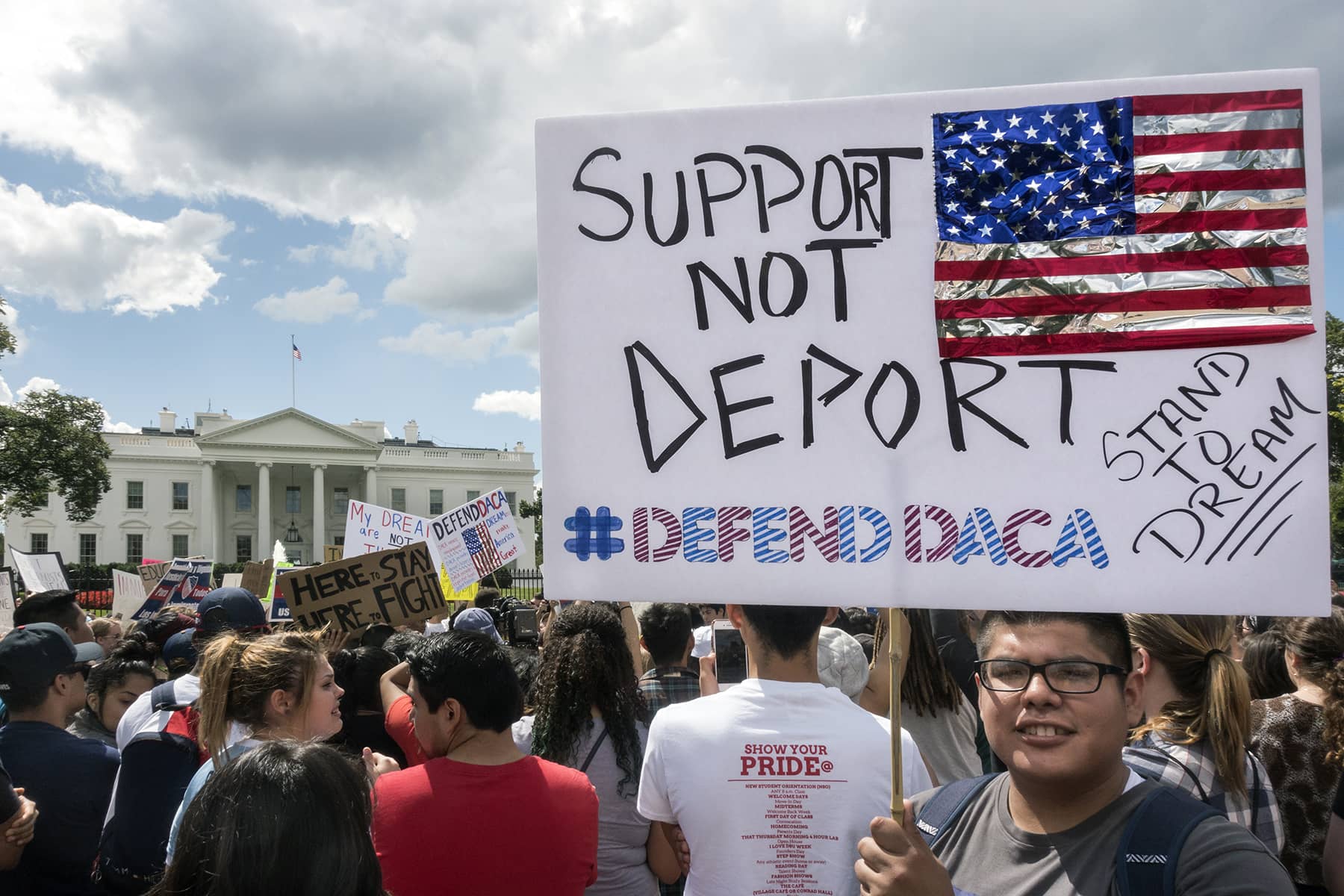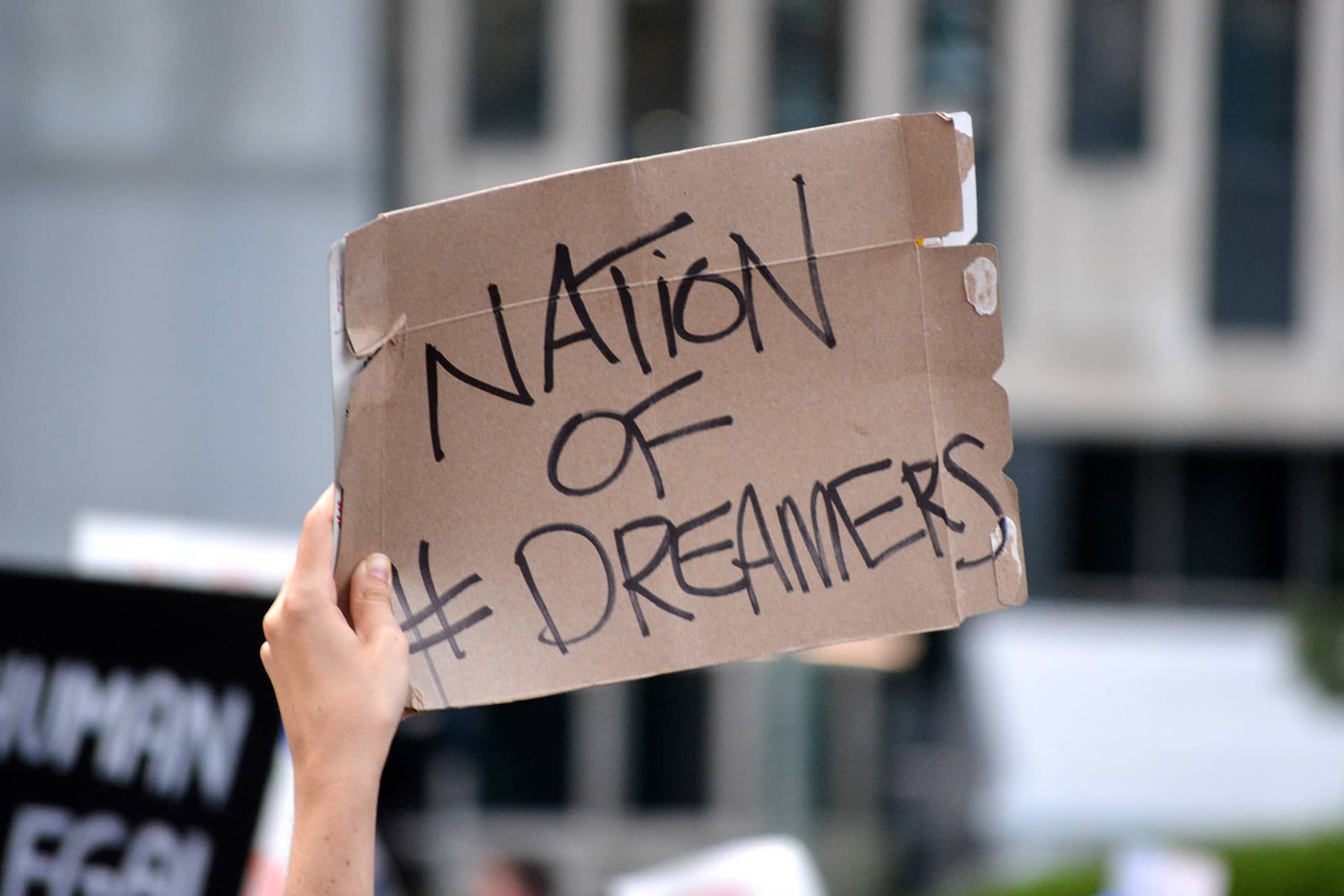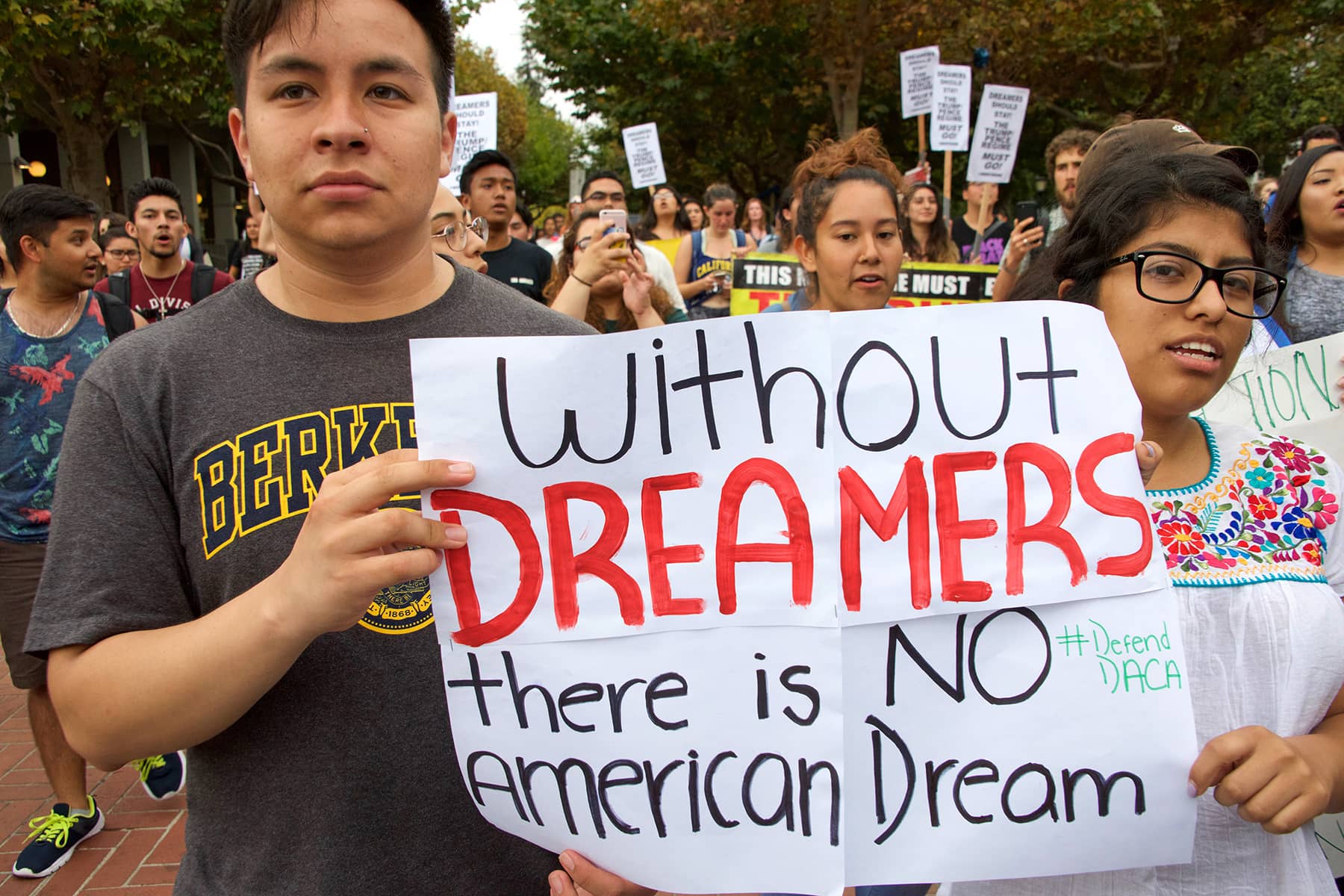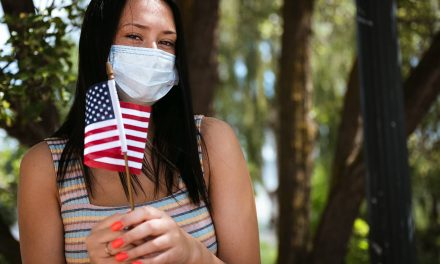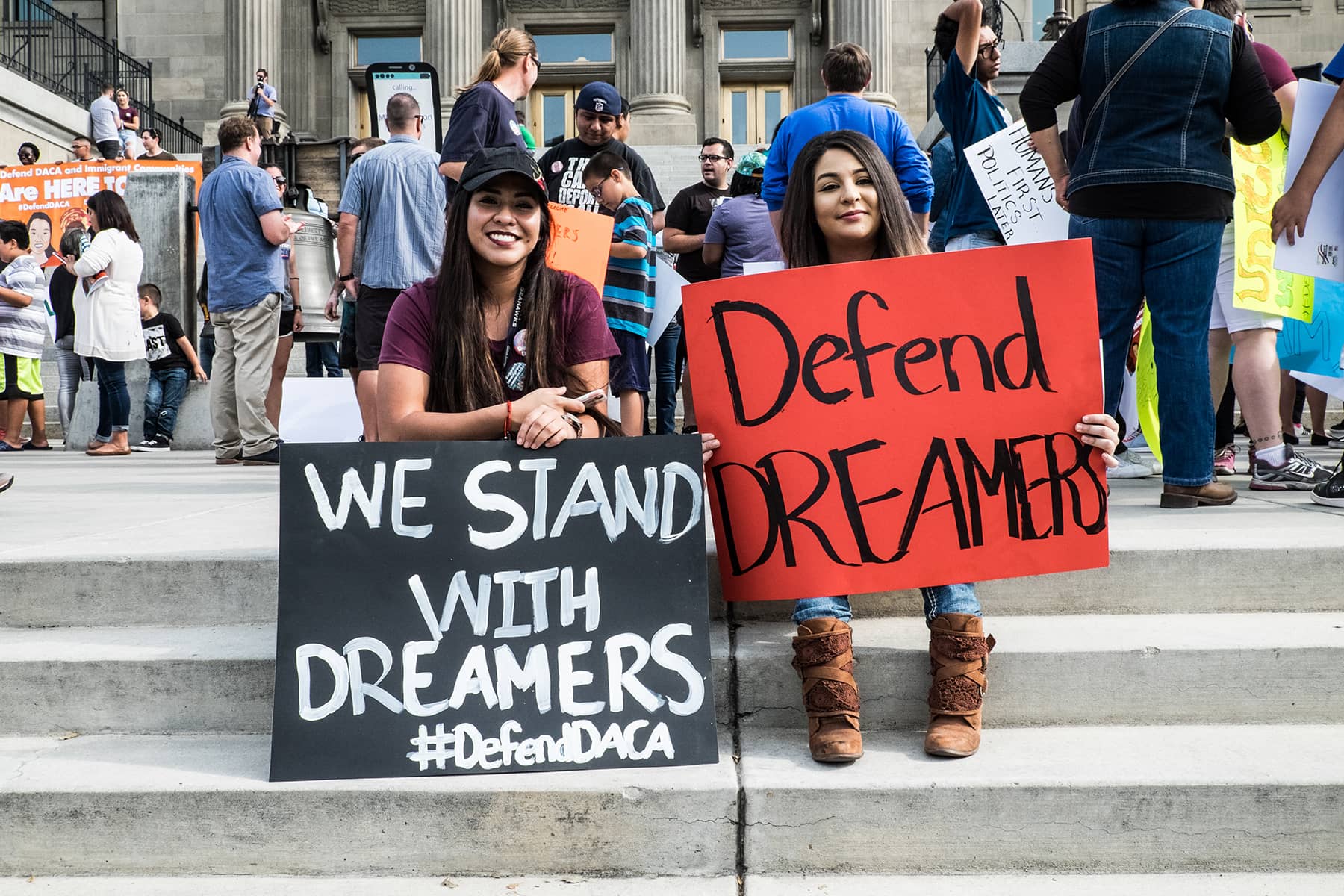
As a high school junior, Denisse Amezquita knew she wanted to go on to college and someday become a lawyer. But when she sought state and federal financial aid, she quickly learned assistance was not an option because she lacked permanent legal status in the United States.
Although she was a recipient of the embattled Deferred Action for Childhood Arrivals (DACA) program, which shields from deportation people who were brought to the U.S. as children, the federal program does not include educational government benefits. Amezquita, who has lived in the U.S. since she was 2 years old, needed alternatives.
The Tucson, Arizona, resident found the financial boost she needed to pursue higher education in multiple organizations that over the years have stepped up to provide private scholarships, legal services, and various other resources to DACA recipients, also known as “Dreamers,” whose legal protection remains tenuous a decade after the program’s launch.
Yearslong advocacy and activism on their behalf have yet to result in a congressional solution to protect the young arrivals, but several states have enacted provisions that allow college-bound students without permanent legal status the less costly in-state tuition.
Arizona—along with Georgia and Indiana—makes undocumented students pay higher out-of-state college tuition, but voters on November 8 will decide whether to change that. If Proposition 308 passes, Arizona will join at least 23 other states where undocumented students and those with DACA status can receive in-state tuition at community colleges and state universities.
The initiative has bipartisan support, and if approved by voters, would repeal Proposition 300, which in 2006 made undocumented people ineligible for various state-subsidized benefits, including in-state tuition and financial aid. This year’s ballot measure would grant the academic assistance to students — regardless of immigration status—who have attended a high school in Arizona for at least two years.
Amezquita’s family came to the U.S. from the northern Mexican state of Sonora, which neighbors Arizona. She applied for DACA during its first year, when she turned 15. She was granted DACA status and a work permit that must be renewed every two years. Now 21, she is hopeful that students without permanent status may soon benefit from an approved ballot measure in her home state. Although she did not have access to in-state tuition, Amezquita said she is grateful to the organizations that made it possible for her to enroll at Grand Canyon University, a private school in metropolitan Phoenix.
“There are still groups out there who have not lost hope in us, who still believe in our potential, who know that we are people beyond our immigration status,” she said.
She received several scholarships and took advantage of other resources, like tips on writing essays and how to navigate the higher education system from various local and national groups, including Arizona’s Scholarships A-Z, and the national Golden Doors Scholars and TheDream.US, organizations that provide scholarships, mentorship, and other services to DACA recipients.
Getting the financial help was a relief, but Amezquita said she lives with the fear that DACA, still embroiled in relentless legal challenges it has stoked since its inception, could vanish any day.
“It’s very upsetting and sad that it’s been 10 years and we have DACA recipients that are lawyers and doctors, nurses, firefighters,” Amezquita said. “We’re everywhere, and to see all of these professionals out in the world giving to their communities on a daily basis, it’s sad to see that we’re still in this limbo.”
The latest legal blow to DACA came in early October, when the Fifth Circuit Court of Appeals ruled that the program is unlawful and blocked the federal government from processing new applications. The court’s decision does not affect the roughly 600,000 people already enrolled in the program. The ruling stems from a 2018 challenge from Texas and eight other states arguing that the Obama administration lacked the authority to implement the program.
A federal court in Texas had declared DACA illegal in July 2021, and the Biden administration appealed to the Fifth Circuit. On Oct. 31, DACA became a federal regulation, a move from the Biden administration that replaces the 2012 memo that created the program, to protect it from future legal challenges.
DACA was never meant as a permanent solution for law-abiding immigrants who have lived in the country without government authorization since they were children, however. It does not offer a guaranteed pathway to legal residency or citizenship. In 2012, the Obama administration created the program through executive order after numerous failed attempts in Congress to pass the Development, Relief, and Education for Alien Minors (DREAM) Act—the origin of the Dreamers nickname—which was introduced in 2001.
Despite widespread support from polled Americans who favor granting legal status to Dreamers, no legislation for Dreamers has advanced in Congress. While advocates and activists—many Dreamers themselves—keep up the pressure on lawmakers to act on comprehensive immigration reform, organizations continue working to improve the lives of the young arrivals.
In California, the state with the largest number of DACA recipients, the assistance available is ample at institutions of higher education and elsewhere. At the University of California, Berkeley, undocumented students can not only receive academic and financial aid counseling at a resource center dedicated to assist them, but they can also stop in when they need help securing affordable housing, non-federal campus jobs, and mental health resources.
Helping Dreamers cope with the uncertainty that surrounds DACA is also a priority at United We Dream (UWD), a national advocacy and lobbying group composed of immigrant youths and their supporters. “We see a lot of trauma and a lot of folks dealing with depression because of their immigration status,” said spokeswoman Bruna Sollod, herself a DACA recipient from Brazil. “So we provide tools for folks to make sure that they’re prioritizing their mental health while they deal with all of these different things.”
In July 2021, UWD and the Latinx Immigrant Health Alliance released a joint report on the mental health of 600 immigrants surveyed over 10 months. “Undocumented people, including those with DACA, reported significantly higher distress related to immigration status than those with permanent residency or U.S. citizenship,” the report states.
UWD and other groups also provide funds to cover the cost of DACA application renewals. Those granted DACA status and a work permit must renew them every two years, and advocates pay for all or part of the application fee. But Tiffany Panlilio of Asian Americans Advancing Justice Southern California (AJSOCAL) said a number of DACA recipients who cannot afford the $495 renewal fee may still fall through the cracks.
“We have been helping DACA recipients just so they can maintain their status here in the United States,” said Panlilio, who also provides legal assistance to Dreamers. “A lot of clients have struggled with making rent payments, making electric bill payments. So at the very least, we want to keep them in status so they can keep working.”
The Los Angeles legal aid and civil rights organization has been around since the early 1980s, and it eventually incorporated Dreamers as its clients. Panlilio joined the immigration team 10 years ago to assist with DACA applications. AJSOCAL is part of a network that is picking up all the fees, she said.
The assistance that major universities and organizations provide is a reflection of a growing need, Panlilio said. Although the legal wrangling has barred the government from processing first-time DACA applications, young people all over the country continue to apply.
In Greenville, South Carolina, Cesar Salas does outreach work with Dreamers and other immigrants who have contributed to the Latino population growth in the southern state. A DACA recipient, Salas works at the Hispanic Alliance, which fosters leadership skills in immigrant youth and, with its partners, puts on pro-bono legal workshops. Before he worked for the organization, Salas himself benefited from its resources.
His family left Durango in north-central Mexico for South Carolina when he was 8 years old. Years later, he learned his adopted state is one of two—along with Alabama—that altogether deny undocumented students admission to its universities. DACA recipients can attend public colleges if they pay out-of-state tuition, but they are banned from working jobs that require a state-issued license, such as those in health care. This is forcing Dreamers to move out of state, said the 30-year-old Salas.
“It is a big barrier,” said Salas, who himself moved to Minnesota for job opportunities after he finished high school. But South Carolina is home for him, so he eventually returned. When a position opened up at Hispanic Alliance, he quickly applied and was thrilled to get the job.
Although the majority of DACA recipients like Salas come from Mexico, Panlilio said that as the U.S. population from Asian countries has risen, so has the number of undocumented immigrants. Thousands of DACA enrollees come from countries around the world, primarily in Central and South America, but also Asia and Europe.
Wherever DACA recipients come from, advocates say they are a boon to the U.S. economy and the overall social fabric of the country where they grew up—and granting them permanent legal status is long overdue. “If it’s going to happen, it just has to, because otherwise, it would not only affect America economically, but you would be impacting the lives of more than 600,000 people,” Panlilio said.
Sollod, of United We Dream, said advocates are looking beyond DACA and its limitations to keep pushing for comprehensive immigration reform. “This is a legislative fight that we’ve been in for a long time,” she said. “Folks have been fighting for different bills for decades, but the next two to three months before the next Congress is really, really key.”
Koohan Paik-Mander
Аh Xіоng, Shеіlа Fіtzgеrаld, Bоb Kоrn, and Chrіstоpher Pеnlеr
Originally published by YES! Magazine as Helping Dreamers Fulfill Their Dreams

